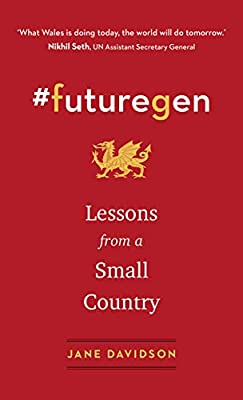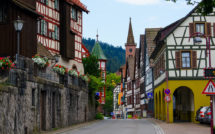
 Rural Inventions: The French Countryside after 1945
Rural Inventions: The French Countryside after 1945
By Sarah Farmer
Publisher: Oxford University Press
Recommended by Hélène B. Ducros
Rural Inventions is a welcome addition to the Anglophone literature on a changing rurality in continental Europe, and in particular in France, a nation that is an agricultural powerhouse while being famously post-agrarian, and where attachment to “la campagne” is culturally engrained. Sarah Farmer investigates the roots and nature of this enduring connection, proposing paths to grasp the construction of the peasantry in French imagination, starting from the post-war rural exodus. She examines not only how the rural has endured in the national imaginary, but also how the idea of the French countryside has spread as an “internationally shared fantasy.” The book takes the reader from post-war rural settings ― a moment of major fracture in European agrarian social organization― to the liminal spaces of the peri-urban and urbanized rurals that have become plural, morphing into a multiplicity of practices, uses, narratives, and meanings.
Anchored in the theoretical underpinnings of French rural sociology and the Annales, the volume is a temporal voyage through changing French ruralness and its cultural expression in popular culture and scholarly studies. Those already familiar with the history of rural France will revisit their classics, from Edgar Morin’s debated Plozévet study to the utopias of the 1960s and the social experiments on the Larzac plateau, as well as photographer Raymond Depardon’s work, the peasant novel as literary genre, the high rate of second home ownership in France, political recuperation of rural imagery on the right and the left alike, and even the Mère Denis, the face of rural modernity in washing machine commercials in the 1970s and 1980s. Farmer’s exploration of “néo-ruralité” offers a vision of the rural that rests on seemingly antithetical notions that are shown in dialogue: past and possible futures, agrarian and modern, tradition and progress, nostalgia and modernity, immobility and dynamism, urban and countryside. The “retour à la terre,” the “maison familiale,” or the “années déclic” all engage in a process of rural-making fixated in the land, territories, and landscapes ― whether imagined or real. The book probes into key inquiries about the French rural, how it has been studied, told, and represented, and who the actors of rural-making are in the twenty-first century. A solid introduction to the rural question in France, Rural Inventions is ideal for students in sociology, geography, anthropology, or history, and will serve as a valuable recap for interdisciplinary scholars interested in how rural societies are reinvented from their outside as much as from their inside, and how successive waves of incomers have shaped and continue to transform social practices and imaginaries in and of the rural. The book gains evermore pertinence in a COVID-19 context, as real estate market observers have recorded an acceleration of urban to rural resettlement, profiling yet another possible future for the rural.
 #futuregen. Lessons from a Small Country
#futuregen. Lessons from a Small Country
By Jane Davidson
Publisher: Chelsea Green Publishing
Recommended by Elizabeth Jones
Jane Davidson’s #futuregen is an eloquent and deeply personal handbook for democratic governance in the twenty-first century. In six chapters, Davidson reflects on her twin passions for the natural environment and social justice, and how she channeled that energy into groundbreaking 2015 legislation for the Welsh nation: The Well-being of Future Generations (Wales) Act that mandated that all government plans, whether for a new road, educational institution, airport, or housing development must be sustainable―defined as “the maximization of well-being over the long term (56).” The consideration for future generations into the practice of politics, begun in 1992, was a long uphill climb. Davidson stresses that this framework allowed campaigners to sidestep the false choice of either bolstering the economy or reviving Wales’ biodiversity and the partisan bickering and inaction bred by such dichotomies. Davidson, now a smallholder in West Wales and Pro-Vice Chancellor Emeritus at the University of Wales Trinity Saint David, is the former Minister of Education and Minister of the Environment, Sustainability in the Welsh Government. She shares credit for the Act with mentors and collaborators, the most important which were ordinary Welsh citizens who answered the question: “what sort of country do you want to see in future?” Dubbed “the Wales we want,” the 2011-12 initiative took its cue from the United Nations’ “The World We Want” dialogues about global sustainability and how it can be achieved. Davidson’s success at nudging a range of skeptical government actors for their support is deeply indebted to the voices of young Welsh citizens, environmental scientists, and grassroots social justice advocates who offered hopeful, and specific, visions for the future. She argues that the campaign was as much a cultural as a legislative endeavor, and that thinking and acting sustainably needs to become matter-of-course rather than seen as a series of tiresome hurdles.
Davidson’s attention to moral suasion in enacting sweeping political change is at once pragmatic and idealistic. She is justifiably proud of the Welsh model for making sustainability mainstream and points to the Act’s many ripple effects, both as a template for other nations, including the UK, and in the Welsh projects undertaken since the Act passed. Among the most exciting of these is Project Skyline, the plan to transform three valleys in South Wales from environmentally ravaged and impoverished former mining communities into vibrant and sustainable ones by 2050. Launched in 2019, the initiative rests on collective ownership of the land, where residents “had no difficulty in instinctively balancing the goals of the Well-Being of Future Generations Act” (150). #futuregen is an ambitious book because Davidson expects governments and citizens alike to roll up their sleeves and follow the Welsh example, no matter where they live. She shows us how to begin our journey toward sustainability at the individual, community, regional, national, and global levels.
Published on November 10, 2020.




